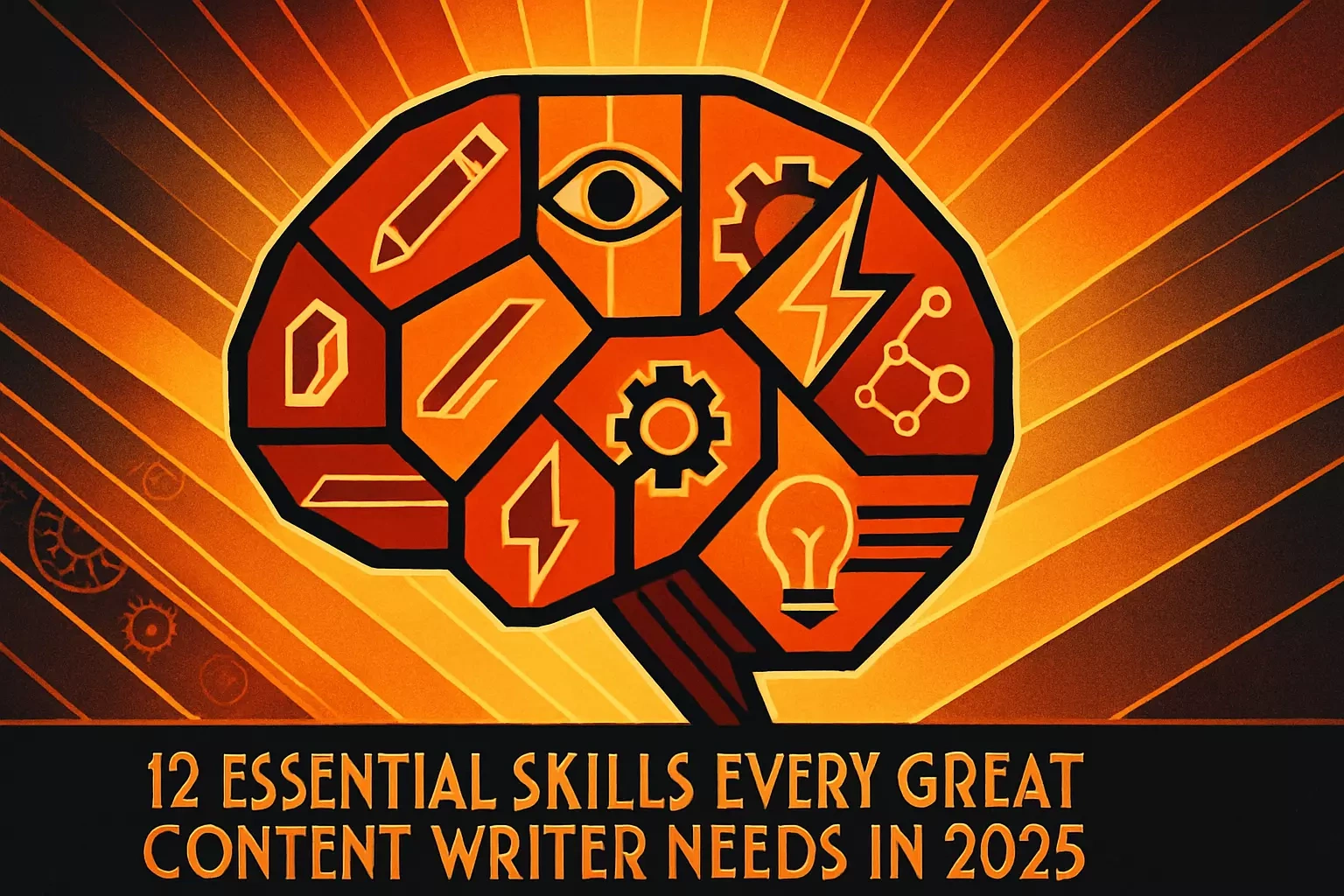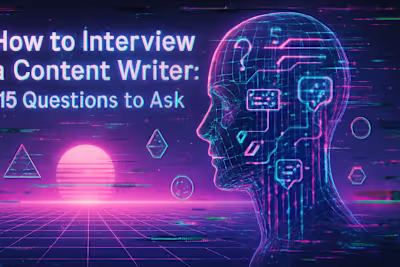12 Essential Skills Every Great Content Writer Needs in 2025

12 Essential Skills Every Great Content Writer Needs in 2025
Foundational Writing Skills: The Non-Negotiables
1. Impeccable Grammar and Punctuation
2. Strong Research Abilities
3. Originality and Creativity
Strategic & Marketing Skills for Modern Content Writers
4. Deep Understanding of SEO
5. Audience Empathy and Understanding
6. Adaptability in Tone and Style
7. Understanding of the Marketing Funnel
Professional and Collaborative Skills
8. Excellent Communication
9. Reliability and Time Management
10. Ability to Take and Implement Feedback
11. Tech-Savviness
12. Knowledge of AI Writing Tools
Conclusion
References
12 Essential Skills Every Great Content Writer Needs in 2025
Foundational Writing Skills: The Non-Negotiables
1. Impeccable Grammar and Punctuation
2. Strong Research Abilities
3. Originality and Creativity
Strategic & Marketing Skills for Modern Content Writers
4. Deep Understanding of SEO
5. Audience Empathy and Understanding
6. Adaptability in Tone and Style
7. Understanding of the Marketing Funnel
Professional and Collaborative Skills
8. Excellent Communication
9. Reliability and Time Management
10. Ability to Take and Implement Feedback
11. Tech-Savviness
12. Knowledge of AI Writing Tools
Conclusion
References
Posted Jun 15, 2025
Hiring a content writer? Ensure they have these 12 critical skills, from SEO expertise to adaptability. Learn how to vet candidates and build a winning content team.










